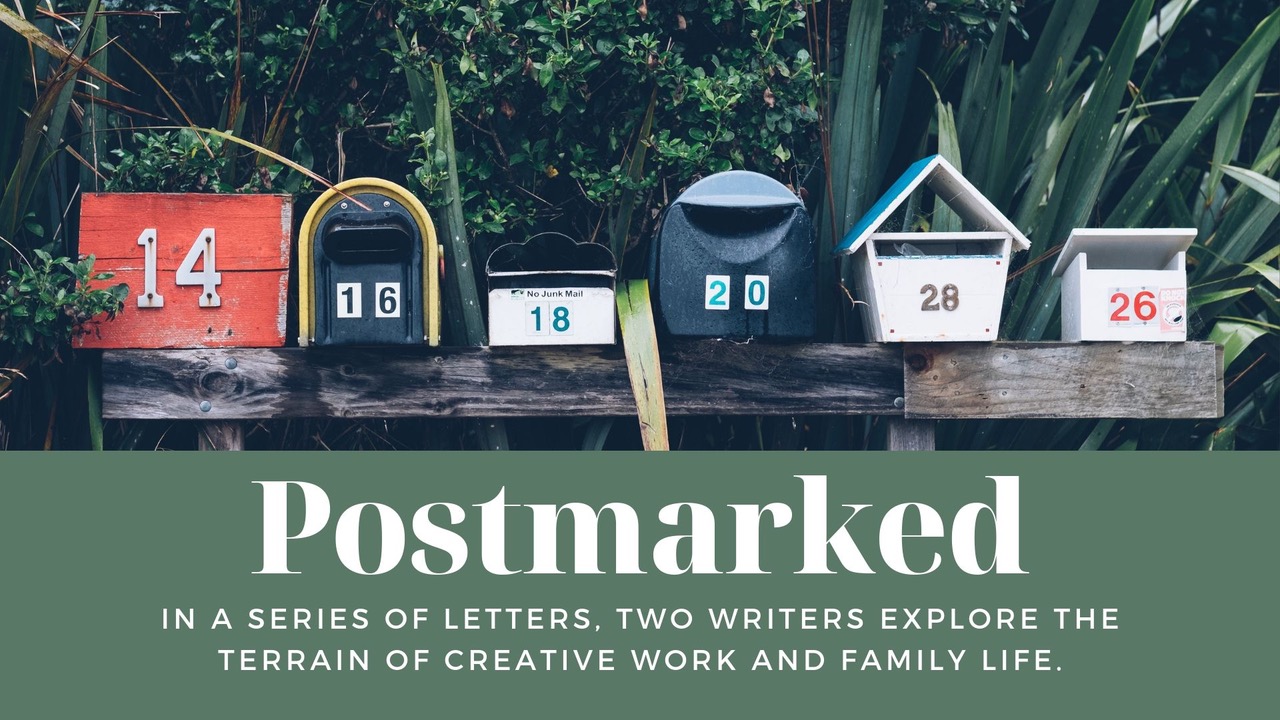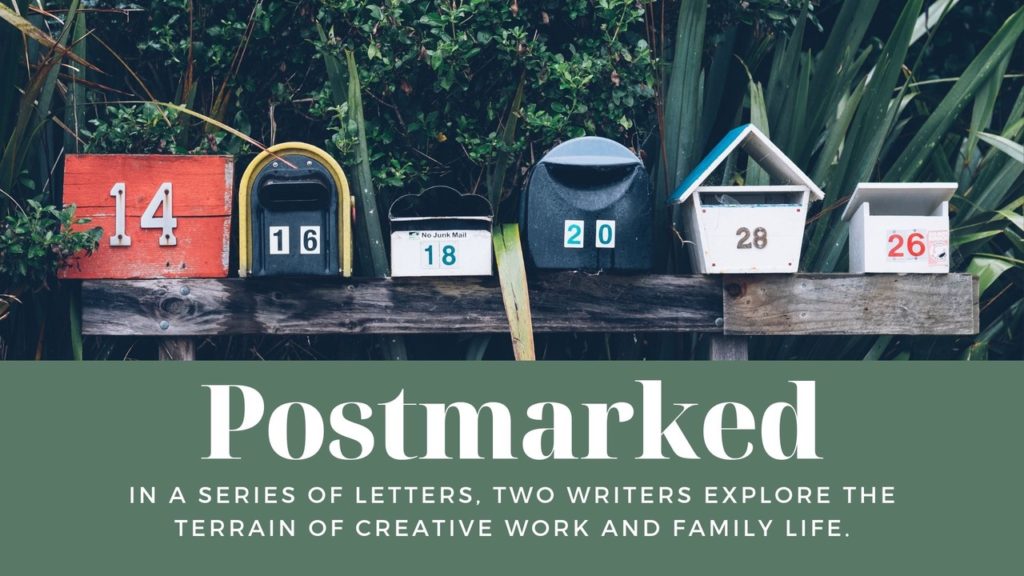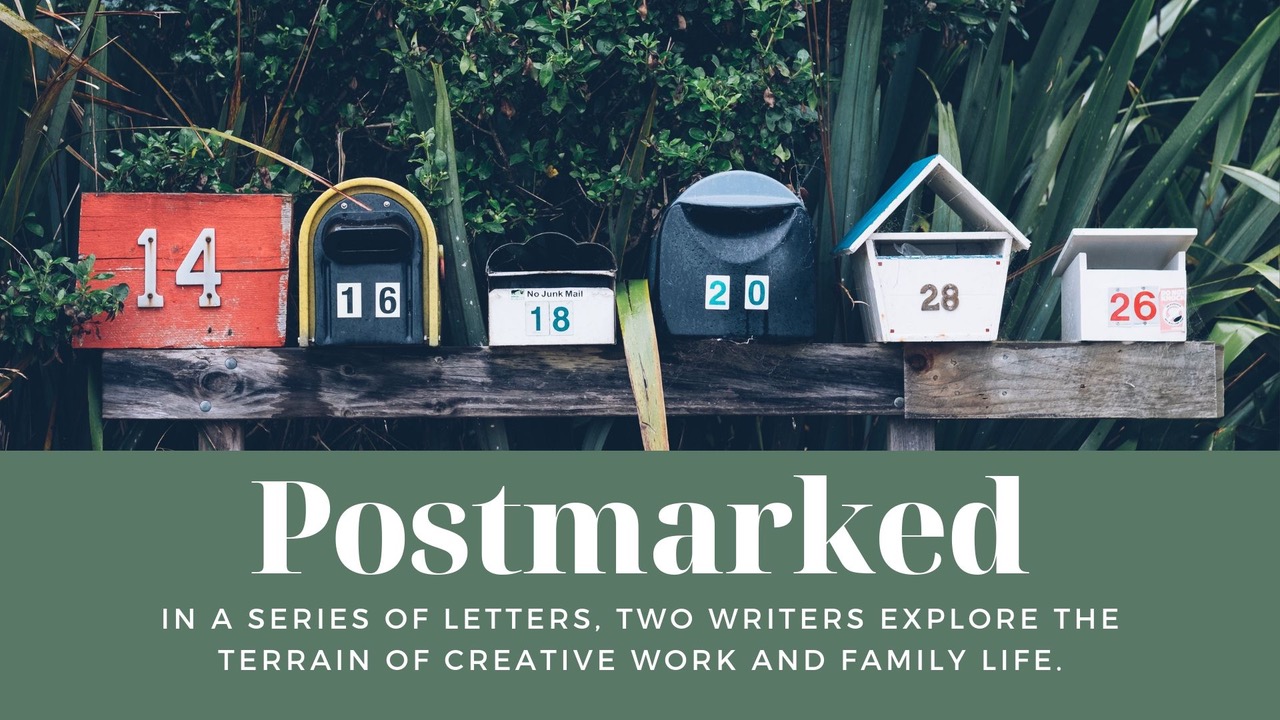Dear Jen
It’s rather hard to believe this our 20th letter, which means I guess we’ve been doing this now for what? Four months? Five months? That’s one thing about life that always surprises me, no matter how many times I experience it—faithful, consistent work always adds up to something. It’s been that way for me in writing, marriage, raising children, and all sorts of other areas.
But it’s so unglamorous, isn’t it? The everyday work, done behind closed doors, not drawing attention to itself? It’s the handwritten note, the gentle, passing kiss of a spouse, the reading of a book to a child, the 1,000 daily words. These are the things that make up a beautiful life—not the awards or the prestige or the starred reviews. It’s the simple things. Would that I always remembered that.
I love the image you described of the woman who was moved to tears at the orchestra. The older I get, the more I love tears—to me, they signify that something important is happening. I have been known to cry when I laugh hard and long, and those moments are always sweet. We wept hard over my friend’s son and my grandmother, but there were moments when I would lock eyes with someone else who was crying, and it was like I saw that person for the first time. Shared grief is actually an intimate, wholesome thing. We avoid tears in our culture at our peril.
I turn 43 today, which means I am in the liminal space you were talking about, that middle ground, that waiting. I wait to see how my children’s lives will turn out, wait to see if anything will come of these books I’m writing, wait to see what will become of this physical body I inhabit. And I am increasingly content with this reality. I am glad to be in my 40s—my 20s were passionate and tempestuous, my 30s just plain hard. I feel I am finally settling into life, settling into myself.
On the other hand, dwelling in the liminal space of fiction has been my greatest challenge and most difficult discipline to learn. It is perhaps the most crucial skill of a storyteller—allow the tension to exist, tease it out, let it linger, and then, just as everything seems twisted into knots, pull the right string, and the story slips into place. I have always been one to resolve the conflict and tension in my real life as quickly as possible. It makes me uncomfortable to create a character and then make their story difficult. But I think it’s in that difficulty, it’s in that unpredictability and tension, where we learn the most wonderful things about life. And, as you have written, “In this life, there is pain, so much of it unresolved, and we find ourselves waiting, nurturing the faintest hope that surely we haven’t gotten to the end.”
Maybe that’s what writing fiction is teaching me. The art of hope.
And yes, the new year is right around the corner. I do tend to become rather reflective during these last few weeks of the year. While I don’t often do official “resolutions” anymore—I do like your desire to root hurry from your life—I am finding this year that I need to reevaluate my commitments. My co-writing work is busier than ever, the fiction I write is becoming more and more mentally and emotionally demanding (which I love), and our responsibility as parents spans from the new driver to the toddler. Some things must go, and so I’m sifting through my life, picking out the excess, the expendable, laying it aside.
Do you have any resolutions for 2020? How are you feeling about the book you’re working on and the ever-approaching due date? And what are some practical examples of what rooting hurry from your life looks like?
I guess the next time it’s my turn to write, we’ll be in this new year. I hope it is a wonderful one for you and your lovely family.
Merry Christmas, Jen.
Shawn
* * * * *
What began as a Twitter conversation between two writers has become an exchange of letters. Here’s where Postmarked began.



